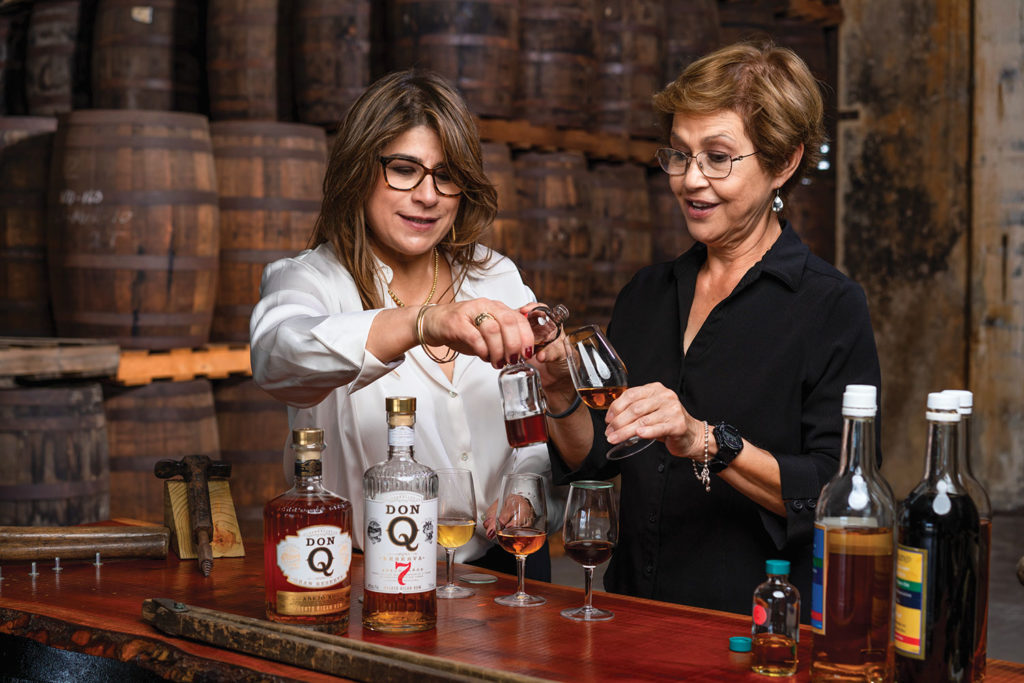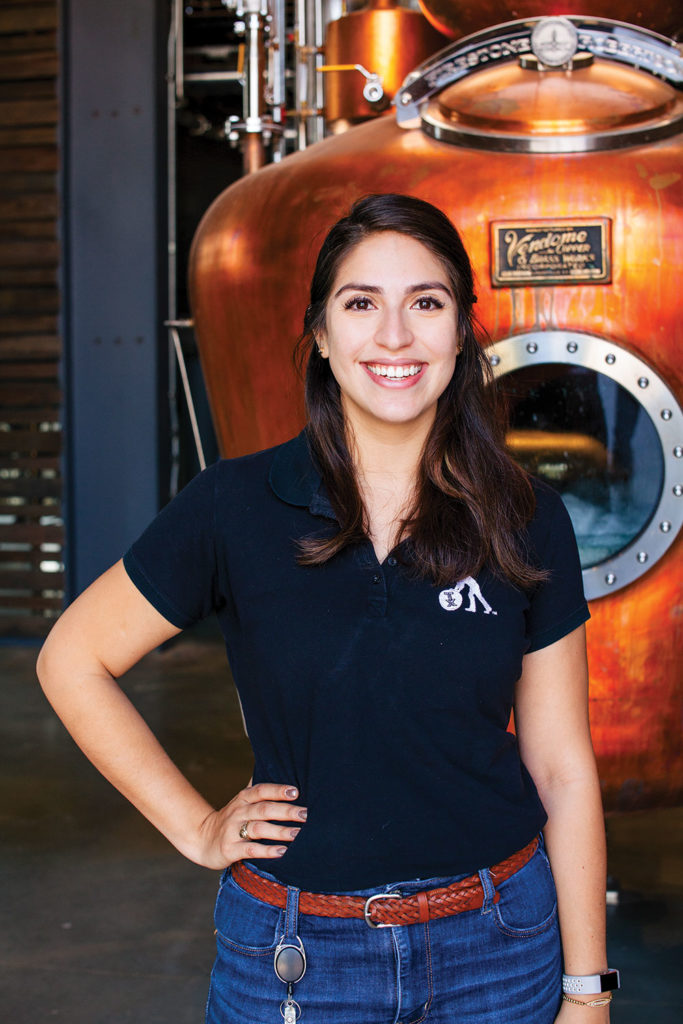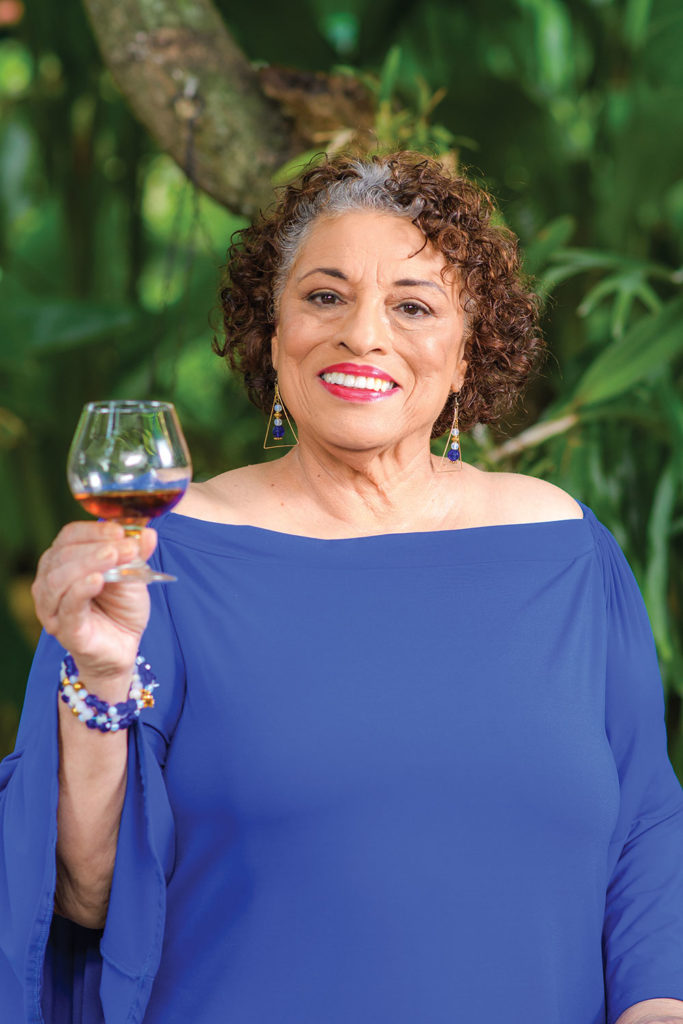The “old boys network” that has long been the beverage alcohol industry has evolved to accept more women in leadership positions. But there’s still a ways to go in terms of true gender diversity, equity and inclusion (DEI). A research study about women and DEI released in March 2022 by Women of the Vine & Spirits found that just 10% of female respondents think there’s been a significant positive change toward women in the last five years across the industry.
What’s more, the Women Raising the Bar study, conducted in collaboration with Deloitte, reveals that a lack of DEI is the number-one issue identified by women that prevents people from considering a career in beverage alcohol.
Some of the female leaders in the industry weighed in on their career experiences and how or if perceptions and conditions had changed in recent years. Like many women, “I’ve been dismissed or overlooked by salesmen, tradesmen and vendors throughout much of my career,” says Remy Drabkin, a lesbian winemaker who founded Dayton, OR-based Remy Wines in 2006. “Then there’s the frequency of inappropriate and cruel ‘jokes’ about our identities and bodies that still make their way into my daily interactions.”
Further, Drabkin says, “I notice I’m still constantly being interrupted by men and experience men repeating my ideas as their own. And, let’s not forget the rampant homophobia that still plagues our communities and often surfaces in some of the ways I’ve just mentioned. On the one hand, we are a very progressive industry, and simultaneously, an industry crying for reform.”
As such, it helps for women in beverage alcohol to be persistent and resilient. “Raising capital and building a brand with a female-focused demographic is tough in a male-dominated industry,” says Dana Spaulding, founder/CEO of single-serve wine brand Wander + Ivy.
Spaulding, who started the company in 2017, hopes to be an example of how persistence and hard work can pay off: “We’ve raised multiple 7-figure rounds of investment and grown our sales triple digits year after year.”
But it’s important to recognize that while the industry remains male-dominated, “we are making inroads into expanding access into key leadership roles and hiring a more diverse base of employees to bring up through leadership,” says Jenn Engel, chief commercial sales officer for Republic National Distributing Co.
“So, while there can be challenges when I am the only woman in the room, I find there are opportunities within that forum to show other women that they, too, can rise through the ranks and make a difference,” she says. “I’ve been blessed to have not just allies, but advocates who help me take on challenges, take calculated risks and expand my skillsets along the way.”
Ale Ochoa, resident whiskey scientist and head blender at TX Whiskey, joined the company in 2017. “I may have been naïve, but I didn’t realize it was a male-dominated industry until people began asking me how it was to work in a male-dominated industry,” she says. “I’ve always been supported in the work I was doing and felt the team’s efforts in helping me grow my professional career.”
Joy Spence, who in 1997 became the world’s first female master blender at rum producer Appleton Estate, agrees.
“I have been very lucky in that I have always received the support of my colleagues and other people in the field,” she says. “While women will continue to face challenges in whatever industry it may be, my focus has been not my gender but the technical and creative skills to do the job.”
Meaningful Mentors
When she was chief chemist at J. Wray and Nephew Ltd. rum, Spence worked with Owen Tulloch, the master blender at the time. “My interest in the industry grew through our interactions,” Spence says.
Tulloch saw that Spence had an organoleptic talent — the ability to detect, identify and differentiate between aromas, “and with his guidance, I was able to extend my knowledge of the science of rum-making to include the artistic side as well,” she says. “My love, my passion for the spirit, has now become a part of my DNA.”
Another influence on Spence was fellow chemist Dr. Rachel Barrie from Scotland, “who was part of the Women in Spirits Forum in the United States when I was just starting out in the industry and encouraged me to continue along my path.”
Spence encourages young women to think outside of the box with their careers, “because when I was their age, I could have never imagined the path ahead of me. I am also currently mentoring David Morrison, senior blender at Appleton Estate, who will be instrumental to Appleton’s exciting future.”
Liza Cordero, who was promoted to master blender at Don Q Rums by Destilería Serrallés in March 2022, has had “wonderful people who have guided me through this industry.” One is Luis Fuster, the company’s previous distillation manager; another is Silvia Santiago, the first female master blender in Puerto Rico.
Santiago, who also holds the title senior vice president of manufacturing and maestra ronera, has been with Serrallés for 49 years. “I continue to work with Silvia in the master blending area and continue to learn from her,” Cordero says.
“I have also had the opportunity to be a mentor to a new generation of engineers that work in our plant,” Cordero adds. “It is so rewarding when you start talking to them about the industry and see how that passion, that commitment, that responsibility, starts to build up in each one of them.”

Ochoa cites Jim Manley, an IT/OT engineer at TX, and a whiskey connoisseur, as one of her mentors. “Jim shared the knowledge and whiskeys he had available to teach me about different styles, the profiles that came from processes or regions, and the history of whiskey,” she says. “I went from being able to recognize whiskey to identifying the overall contributions of grains, yeasts and barrels. This has been especially valuable as I began working in blending.”
Drabkin says she was taken in and mentored by the Ponzi Vineyards winemaking family early on. She also worked for Rob and Maria Stuart of R. Stuart & Co. Winery during her high school years.
“Rob gave me a lot of responsibility early on and trusted me with essential leadership functions like running the bottling line when I was just 16.” And Rollin Soles of ROCO Winery “has always inspired me and pushed me to be a better winemaker.”
Spaulding notes that her board members are some of her greatest mentors and supporters. “Dale Katechis, founder and former CEO of Oskar Blues, and Rita Valois, former CIO of Treasury Wine Estates, are the two industry veterans on my board,” she says. “I strive to be a mentor and supporter of all the founders around me, not just those in the industry. Building that community can be so powerful.”
Where the Boys Aren’t
Attractive pay, company culture and work/life balance are the most critical career objectives for women, outpacing learning/development opportunities and having challenging responsibilities, according to the Women Raising the Bar study. And when it comes to factors that most contribute to a lack of diversity in leadership positions, the perception of industry bias toward men tops the list.
“Rum is especially a male-dominated field, and I think the alcohol industry as a whole can seek out candidates where they are versus the traditional route of hiring from within,” Spence says. Higher education should do more to encourage women into the field, she adds.
“As an industry, we need to be present where students are — ensuring awareness of the diverse career paths within the industry and informing students about the opportunities in all aspects of the business,” agrees Engel. RNDC is working with colleges and universities to expose more people to the industry. For example, it partnered with Florida State University to make the RNDC Beverage Certificate available to all full-time students.
Providing a well-defined career growth plan is also important, Cordero says. “The spirits industry is all about new ideas, always staying up to date in new trends and innovation. It is in our DNA to always look for what is the latest, to be creative. People will be in need of new challenges and move through positions within the organization.”
To retain a diverse workforce, Ochoa says, “companies can provide training and opportunities for growth. For many, this job is a passion, so being able to continue learning and growing in the industry helps feed that passion.”
Employers need to show a real commitment to diversity by putting resources toward DEI, Drabkin says. “Everyone who works for Remy Wines, me included, is required to complete a comprehensive DEI course paid for by the winery. Using this course as a guide, we have regular ongoing discussions around diversity, and we make concrete efforts to attract and retain a diverse workforce every day.”
For example, “I instituted a bilingual pay incentive to attract a multilingual workforce,” Drabkin explains. “The hope is that moves like these will make our winery and tasting room welcoming and accessible to anyone who wants to visit us.”
Flexible Futures
Women coming into the beverage alcohol industry should have an easier time than some of their predecessors. “It is recognized that women have brought a different dimension to the industry,” Spence says.
“The most exciting piece to me is that this has become a consistent conversation with suppliers, customers and distributors,” says Engel. “It’s a part of every deck and its importance has risen to the top of the agenda, which is critical for this trajectory to continue.”
There are tangible results to the actions and intentionality that everyone has put in this critical space, Engel adds. “It requires diversity of thought, it helps us better understand our consumers, customers and suppliers, and is a best practice for successful businesses. We are seeing meaningful action in this space, and I’m excited to see what the future holds.”
The industry has taken the time to understand the importance of building a workforce with people from different cultural backgrounds, generations, skills, experiences gender, Cordero says. “Most of all, they are paying special attention to creating an environment in which everybody feels valued and comfortable.”
What could companies do to ensure that they’re attracting and retaining a more diverse workforce?
“As a mother of two little ones, I find flexibility to be extremely important,” Spaulding notes. “Major flexibility and support for mothers is critical in attracting and retaining talented women who choose to also raise a family.”
Brittany Merrill-Yeng, who cofounded the peanut-butter-flavored whiskey brand Skrewball in 2018 with husband Steven Yeng, agrees. “Each individual has different needs and different things that inspire them. We believe flexibility is key to allowing people to grow as individuals in our organization.” Providing that flexibility ensures that people from different backgrounds, perspectives and circumstances feel welcome, she notes.
Lasting Legacies
In the five years that Ochoa has been in the industry, she’s seen efforts to make the whiskey business more inviting to women and people of color. “Programs and internships have been created for underrepresented professionals,” such as the STEPUP Foundation spirits training and entrepreneurship program. “There’s still plenty of room for change,” she notes, “but improvements have become visible.”
Customers vote with their dollars, and DEI has become important to an increasing number of consumers, says Merrill-Yeng. “I have seen more and more companies realizing that it is an issue they cannot ignore.”
There is ROI on DEI, says Drabkin. “Diverse companies are stronger companies, and diverse companies are better able to weather economic downturns.”
Diversity also needs to be valued continuously — and not because it will elevate the brand or the company name, Cordero says. “Inclusion will foster a sense of creativity, innovation and engagement among team members. In our industry these are characteristics that need to be present in everything we do. This will determine our reputation and legacy.”
Melissa Dowling is editor of Cheers magazine, our on-premise sister publication. Contact her at mdowling@epgmediallc.com, and read her recent piece, Data Driven: Where Tequila Sales Differ.












